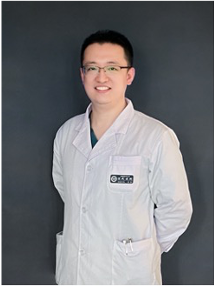
Attending Neurosurgeon
Neurosurgical Critical Care Center
Clinical Expertise: Hydrocephalus
E-mail: zhaohao@xwhosp.org
Research Interests
Critical care of neurosurgery, including temperature targeted management, sedation and analgesia, multimodality monitoring; the surgical treatment of hydrocephalus.
Background
Zhao Hao, MD., Ph.D., postdoctoral fellow, 2017 Beijing Nova program. He received his Bachelor's degree from the School of Medicine from Shandong University in 2004, his Master's degree from the School of Medicine from Shandong University in 2007, and his Doctor's degree from Peking Union Medical College in 2010. After graduation in 2010, he worked in the Neurosurgical Department of the Seventh Medical Center of the PLA General Hospital. From 2015 to 2016, he worked as a visiting scholar in the Department of Neurosurgery of the University of Michigan in the United States. From 2020, he worked in the Department of Neurosurgery, Xuanwu Hospital, Capital Medical University, specializing in neurosurgical intensive care. He had published more than 10 SCI papers as the first author and corresponding author, and many academic papers in Chinese medical journals. He published 1 book on neurointerventional medicine as the chief editor, and 2 books on clinical medicine as the associate chief editor. He had won 1 national utility model patent. He presided over one Youth program of National Natural Science Foundation and a Beijing Nova program. He was a member of the Youth Committee of Health Risk Assessment and Control Committee of Chinese Preventive Medicine Association, a member of the Youth Committee of Cerebrovascular Disease Specialty in Chinese Research Hospitals, a member of the Neurointerventional Branch of Beijing Society of Neurology, and a member of the General Practice Specialty Committee of Beijing Society of Neurology.
Education
1999—2004 Bachelor’s degree, Clinical Medicine, Shandong University
2004—2007 Master’s degree, Neurosurgery, Shandong University
2007—2010 Doctor’s degree, Neurosurgery, Peking Union Medical College
Residencies
2010—2012 Residency of Neurosurgery, General Hospital of Beijing PLA.
2012—2020 Attending physician of Neurosurgery, No. 7 Medical Center of PLA General Hospital.
2020—now Attending physician of Neurosurgery, Xuanwu Hospital
Fellowships
2014.12- 2016.1 Visiting Scholar in department of Neurosurgery, University of Michigan
Certifications
2010 Physician’s practice license
2012 Attending Physician
Awards & Honors
2017, Beijing Nova program
Research & Publications
1. Zhao H, Li Y, Chen L, et al. HucMSCs-Derived miR-206-Knockdown Exosomes Contribute to Neuroprotection in Subarachnoid Hemorrhage Induced Early Brain Injury by Targeting BDNF. Neuroscience 2019;417:11-23. Doi:10.1016/j.neuroscience.2019.07.051. IF:3.056
2. Zhao Hao, Pan wenlong, Chen Lihua, Luo Yongchun, Xu Ruxiang. Nur77 promotes cerebral ischemia-reperfusion injury via activating INF2-mediated mitochondrial fragmentation. J Mol Histol. 2018 Dec;49(6):599-613. doi: 10.1007/s10735-018-9798-8. IF:2.937
3. Zhao H, Luo Y, Chen L, Zhang Z, Shen C, Li Y, Xu R. Sirt3 inhibits cerebral ischemia-reperfusion injury through normalizing Wnt/β-catenin pathway and blocking mitochondrial fission.Cell Stress Chaperones. 2018 23(5):1079-1092. doi: 10.1007/s12192-018-0917-y. IF:2.903
4. Hao Zhao, Thomas Garton, Richard F. Keep, Ya Hua, and Guohua Xi. Microglia/macrophage Polarization after Experimental Intracerebral Hemorrhage. Transl Stroke Res. 2015 Dec; 6(6): 407–409. doi: 10.1007/s12975-015-0428-4 IF:20903 IF:4.503
5. Yusuke Egashira, Hao Zhao, Ya Hua, Richard F. Keep, and Guohua Xi. White matter injury after subarachnoid hemorrhage: role of blood-brain barrier disruption and matrix metalloproteinase-9. Stroke. 2015 Oct; 46(10): 2909–2915.
Research Founds
2012, Youth program of National Natural Science Foundation
2017, Beijing Nova program.
Any use of this site constitutes your agreement to the Terms and Conditions and Privacy Policy linked below.
A single copy of these materials may be reprinted for noncommercial personal use only. "China-INI," "chinaini.org" are trademarks of China International Neuroscience Institute.
© 2008-2021 China International Neuroscience Institute (China-INI). All rights reserved.